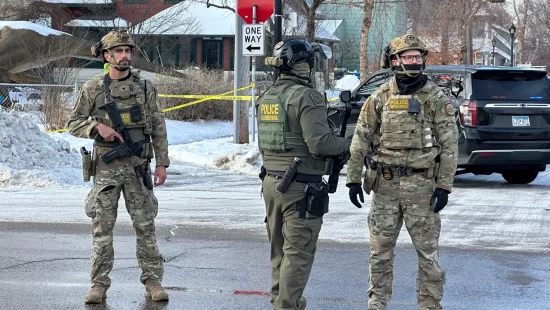Sharp Rise in Advanced Prostate Cancer Sparks Alarm Nationwide and in California, with Potential Impact on Latino Communities
The recent prostate cancer diagnosis of former President Joe Biden—revealed to be an aggressive and advanced form that has metastasized to his bones—has drawn renewed national attention to the growing public health crisis surrounding prostate cancer. The timing of this high-profile diagnosis coincides with alarming research from the University of California, San Francisco (UCSF) showing a sharp increase in advanced prostate cancer cases across California, sparking concern among public health experts and physicians alike.
According to the American Cancer Society (ACS), prostate cancer is the most common cancer (excluding skin cancer) among men in the United States and the second leading cause of cancer-related deaths. In 2025 alone, it’s estimated that over 313,000 new cases will be diagnosed and more than 35,000 deaths will occur.
In California, UCSF researchers found that between 2011 and 2021, cases of advanced prostate cancer increased by 6.7% annually, reversing a previous trend of decline. This trend was consistent across all age groups, regions, races, and ethnicities, suggesting a systemic issue potentially linked to changes in screening practices.
Notably, the study found that 7.2% of the 388,000 prostate cancer cases diagnosed in the state during this period were already at an advanced stage, with a five-year survival rate of just 37%.
While the UCSF study did not break down the data by specific ethnicity within racial categories, Latino health advocates warn that Latino men may be disproportionately affected due to limited access to healthcare, lower screening rates, and less frequent conversations with doctors about prostate health. Cultural stigmas and language barriers can also delay diagnosis until the disease is in a more aggressive stage.
California’s large Latino population—comprising nearly 40% of the state’s residents—means that even a small disparity in detection or treatment could have significant public health consequences.
“Early detection saves lives, but only if men are given the opportunity and information to get screened,” said Dr. Ana Ruiz, a Los Angeles-based urologist. “Too often, Latino men are not part of those screening conversations until it’s too late.”
Experts point to a 2012 policy change by the U.S. Preventive Services Task Force (USPSTF) that stopped recommending routine PSA screening for all men due to concerns about overdiagnosis and unnecessary treatments. However, in 2018, the task force revised its guidance, advising that men aged 55 to 69 consult with their doctors about the benefits and risks of screening.
Unfortunately, UCSF researchers note that these crucial discussions often don’t happen—especially in communities with fewer healthcare resources or among non-English speakers—leading to a growing number of men being diagnosed with late-stage disease, when treatment options are more limited and less effective.
Prostate cancer begins in the prostate gland, located just below the bladder. Most tumors are slow-growing and may not pose a major health risk. But aggressive types—like the one afflicting President Biden—can spread to the bones and other organs. His cancer, described as hormone-sensitive with a Gleason score of 9, is considered high risk and requires intensive treatment.
Common early symptoms include:
- Difficulty urinating
- Blood in urine or semen
- Erectile dysfunction
- Pain in hips, ribs, or spine (in advanced stages)
- Fatigue or weight loss
Many men, however, experience no symptoms in early stages, making screening essential.
Screening and Treatment Options
The main tools for detection are:
- PSA blood tests: Measures prostate-specific antigen levels
- Digital rectal exams (DRE): Physical examination of the prostate
- Prostate biopsies: Used to assess the aggressiveness of a tumor
Treatment varies by stage:
- Localized cancer: Active surveillance, surgery, or radiation
- Advanced cancer: Hormone (androgen-deprivation) therapy and chemotherapy
As President Biden begins treatment, experts say his prognosis will depend on how well his cancer responds to hormone therapy. For many men, especially those diagnosed early, survival rates are excellent—over 99% for localized cancer.
Health experts are urging Latino men—and all men over 50, or over 40 if at higher risk—to speak with their healthcare providers about prostate cancer screening. For those with family histories or other risk factors, earlier screening is essential.
Community clinics and Spanish-language health campaigns can play a critical role. “We need targeted outreach in Spanish and culturally relevant messaging,” said Dr. Ruiz. “Latino families deserve to be informed and empowered to act early.”
The rise in advanced prostate cancer cases—highlighted by both President Biden’s diagnosis and UCSF’s statewide study—underscores the need for equitable, proactive healthcare. Ensuring that all men, including those in underserved communities like many Latinos in California, have access to screening and accurate information could save thousands of lives.








